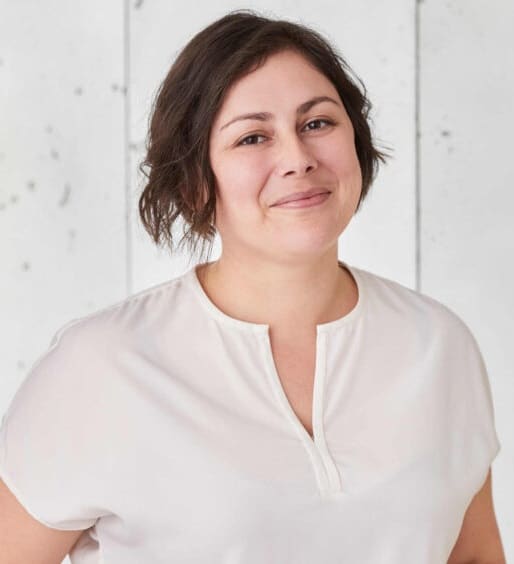LEED Fellow Class of 2023 Announced: CAGBC Member honoured
- Theme
- Member Profiles
The U.S. Green Building Council (USGBC) and Green Business Certification Inc. (GBCI) recently announced the 2023 class of LEED Fellows. They recognized 21 professionals from around the world for their mastery of LEED, globally the most widely used green building rating system. Among the honourees is Melanie Pitre of Aedifica.
Melanie Pitre is VP of Sustainability and Engineering and partner at Aedifica, with two decades of experience. She led a LEED Canada Review team for the CAGBC for seven years and has volunteered on CAGBC’s Technical Advisory Groups for five years. We congratulate Melanie on her significant achievement.
The 2023 LEED Fellows will be recognized Thursday, Sept. 28 during the annual Greenbuild International Conference & Expo. The LEED Fellow program was established in 2011 to recognize outstanding LEED APs who have demonstrated exceptional impacts with LEED in key mastery elements related to technical knowledge and skill; a history of exemplary leadership in LEED; significant contributions in teaching, mentoring, or research with proven outcomes; and a history of highly impactful commitment, service, and advocacy for LEED. Nominees must hold an active LEED AP with specialty credentials, among other requirements.
Interview with Melanie Pitre
What does the LEED Fellow distinction mean to you?
The distinction of being a LEED Fellow means much more to me than just a career achievement. It is a recognition of my career choices, of convincing clients to build differently, and of the efforts I have made over the years to contribute to the transformation of the Quebec real estate market. It is also an encouragement to continue investing in it because despite the evolution in the adoption of LEED over the past two decades, it is even more urgent to make sustainable building a standard of the industry.
I don’t have enough gray hair to stop now! So, I will continue to promote LEED to my clients and my peers with the aim of improving the impact of their projects, to get involved in the evolution of LEED programs to always elevate the industry, and to support innovative concepts in sustainable building because it is the solution in the context of fighting, adapting to, and resiliently addressing climate change.

You’ve been working on LEED projects for almost 20 years. What does LEED help you achieve on your projects?
LEED is an incredible performance framework. It addresses all aspects of sustainable building, taking into account the design challenges, construction issues, and the operational realities faced by the operators of these buildings. No one can simultaneously master the architecture, landscaping, electromechanical systems, civil and structural engineering. Therefore, LEED teaches us how to integrate all these areas of expertise into the development of synergistic solutions that will genuinely reduce negative impacts on the environment and increase positive impacts on the people who will occupy the space over time.
I’ve had the opportunity to work with four different versions of LEED throughout my career. Some requirements have disappeared over time, while others have been added and even strengthened in response to the development of knowledge and market evolution. That’s what I appreciate about this performance framework; it ensures that our projects always align with the most up-to-date industry standards of excellence.
Any new areas you hope future versions will address?
I believe that in addition to more specific ecological issues such as water, biodiversity, and natural resources, I would like to see global indicators such as carbon footprint included in the future versions of LEED.
A carbon footprint translates into the energy that will be consumed by the building over time, the embodied carbon in materials used to build and repair, and the waste generated over a useful lifespan. This type of indicator could promote the selection of more responsible energy sources, and encourage the preservation of existing building and products circularity.
Any piece of advice you’d like to give to professionals starting out in green building?
The best advice I can give to this new generation of professionals of the building market is to never give up. Advocating for more sustainable practices is not always easy, but no one is against virtue. Exemplariness, boldness, and innovation will always have their place in an ever more sustainable building industry.